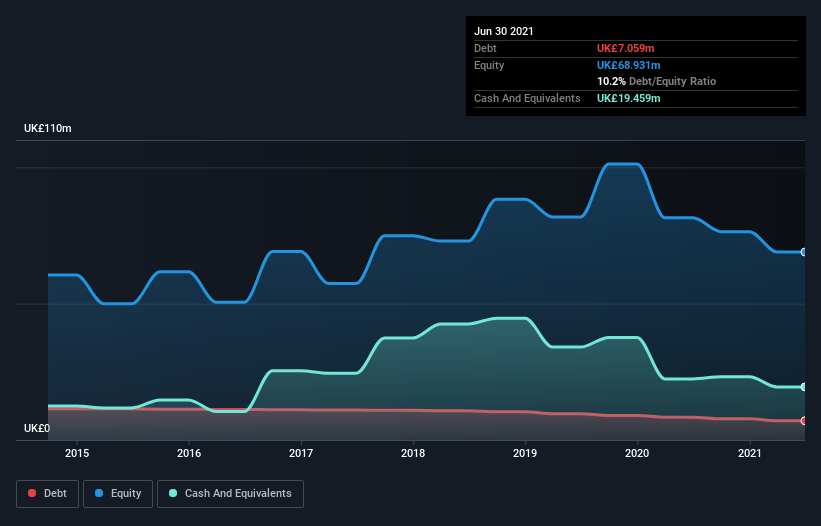Health Check: How Prudently Does Celtic (LON:CCP) Use Debt?
Warren Buffett famously said, 'Volatility is far from synonymous with risk.' So it seems the smart money knows that debt - which is usually involved in bankruptcies - is a very important factor, when you assess how risky a company is. As with many other companies Celtic plc (LON:CCP) makes use of debt. But is this debt a concern to shareholders?
When Is Debt A Problem?
Generally speaking, debt only becomes a real problem when a company can't easily pay it off, either by raising capital or with its own cash flow. Part and parcel of capitalism is the process of 'creative destruction' where failed businesses are mercilessly liquidated by their bankers. While that is not too common, we often do see indebted companies permanently diluting shareholders because lenders force them to raise capital at a distressed price. Of course, plenty of companies use debt to fund growth, without any negative consequences. The first step when considering a company's debt levels is to consider its cash and debt together.
Check out our latest analysis for Celtic
What Is Celtic's Net Debt?
You can click the graphic below for the historical numbers, but it shows that Celtic had UK£7.06m of debt in June 2021, down from UK£8.38m, one year before. But on the other hand it also has UK£19.5m in cash, leading to a UK£12.4m net cash position.
How Healthy Is Celtic's Balance Sheet?
Zooming in on the latest balance sheet data, we can see that Celtic had liabilities of UK£52.5m due within 12 months and liabilities of UK£13.2m due beyond that. Offsetting this, it had UK£19.5m in cash and UK£23.8m in receivables that were due within 12 months. So it has liabilities totalling UK£22.5m more than its cash and near-term receivables, combined.
Celtic has a market capitalization of UK£100.1m, so it could very likely raise cash to ameliorate its balance sheet, if the need arose. But we definitely want to keep our eyes open to indications that its debt is bringing too much risk. While it does have liabilities worth noting, Celtic also has more cash than debt, so we're pretty confident it can manage its debt safely. There's no doubt that we learn most about debt from the balance sheet. But it is future earnings, more than anything, that will determine Celtic's ability to maintain a healthy balance sheet going forward. So if you're focused on the future you can check out this free report showing analyst profit forecasts.
Over 12 months, Celtic made a loss at the EBIT level, and saw its revenue drop to UK£61m, which is a fall of 13%. We would much prefer see growth.
So How Risky Is Celtic?
By their very nature companies that are losing money are more risky than those with a long history of profitability. And we do note that Celtic had an earnings before interest and tax (EBIT) loss, over the last year. And over the same period it saw negative free cash outflow of UK£456k and booked a UK£13m accounting loss. With only UK£12.4m on the balance sheet, it would appear that its going to need to raise capital again soon. Overall, we'd say the stock is a bit risky, and we're usually very cautious until we see positive free cash flow. When analysing debt levels, the balance sheet is the obvious place to start. However, not all investment risk resides within the balance sheet - far from it. Be aware that Celtic is showing 1 warning sign in our investment analysis , you should know about...
If, after all that, you're more interested in a fast growing company with a rock-solid balance sheet, then check out our list of net cash growth stocks without delay.
This article by Simply Wall St is general in nature. We provide commentary based on historical data and analyst forecasts only using an unbiased methodology and our articles are not intended to be financial advice. It does not constitute a recommendation to buy or sell any stock, and does not take account of your objectives, or your financial situation. We aim to bring you long-term focused analysis driven by fundamental data. Note that our analysis may not factor in the latest price-sensitive company announcements or qualitative material. Simply Wall St has no position in any stocks mentioned.
Have feedback on this article? Concerned about the content? Get in touch with us directly. Alternatively, email editorial-team (at) simplywallst.com.

